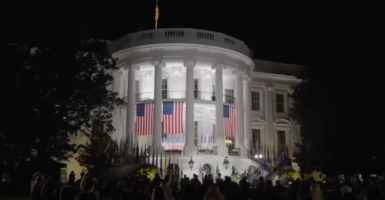With 10% Of All Students Homeschooled, North Carolina May Make It Harder
As more parents turn to homeschooling in North Carolina, state legislators look to enforce more restrictions on the those taught at home.

As the nation battles an ongoing education crisis, more families have been turning to homeschool as a means to educate their children. It is estimated that the number of homeschooled children throughout the country has doubled since the pandemic. And as that number keeps increasing, more lawmakers are discussing laws regulating homeschool education. While some states are pushing to make homeschooling more attainable, states like North Carolina might be looking to make it harder.
At a state oversight meeting this past Tuesday, lawmakers in North Carolina discussed the tar heel states’ current homeschool laws. To many’s surprise, the state’s laws regarding homeschool education seemed quite lax. Homeschooled students saw a significant jump this year, as it was reported that about one in 10 students in North Carolina are currently homeschooled.
As the lawmakers further investigated North Carolina’s current laws regarding homeschooled students, many legislators learned they have little oversight surrounding homeschooling laws. Chena Flood, the Chief Executive Officer at Epiphany Change Coaching and Consulting, LLC also leads the North Carolina Division of Non-Public Education. Flood explained the law, which has not been updated in nearly 35 years.
The North Carolina law restricts state oversight in regards to homeschooling. Once parents notify the state of their intention to homeschool, they don’t have to report how many students they have, what they are learning, or how they’re performing academically. Similarly, homeschooled children are required to be given one national test a year. Even more surprising, homeschooled students are allowed to choose which national test they take, and they are not required to report on the score. This means homeschooled students could fail a national exam and still graduate.

With lawmakers of the North Carolina government seeming shocked with the trivial legislation, state Representative Erin Pare, a Republican constituent from District 37, replied, “The test is taken, but they could fail the test and still graduate?” Flood responded to Pare by confirming the state law doesn’t have any conditions regarding academic requirements or standards for those that homeschool. State Senator Ernestine Bazemore, a Democrat from District 3, continued questioning the state law asking, “The program seems like once they are accepted into homeschooling, that’s it. Is that it?” Flood explained that while there are means to investigate any speculation of neglect, the department doesn’t have the means to examine cases given their small staff to homeschool student ratio.
The information is daunting to many. According to Flood’s remarks, North Carolina currently has over 100 thousand homeschool students. Her staff at the Non-Public Education division, however, only has six employees to cover the entire state. According to the official site for the state’s Department of Administration, the six-person staff not only are responsible for notices of intent to begin homeschooling but also are charged with annually inspecting the school’s student attendance and nationally standardized achievement test result records.
With North Carolina lawmakers paying close scrutiny to the state’s homeschool laws, homeschool parents like Matthew McDill think the current law is just fine. “The bigger question, of course, is, what do they need to know and why?” said McDill to WRAL news. McDill also leads an advocacy group for Home Education in the state. McDill went on to iterate that his number one concern for homeschooling parents is to protect their rights, as he said he is not “generally interested” in more regulations. In the meantime, McDill and other homeschooling parents will remain able to educate their children in the means they see fit. At this time, no new legislation has been proposed.



